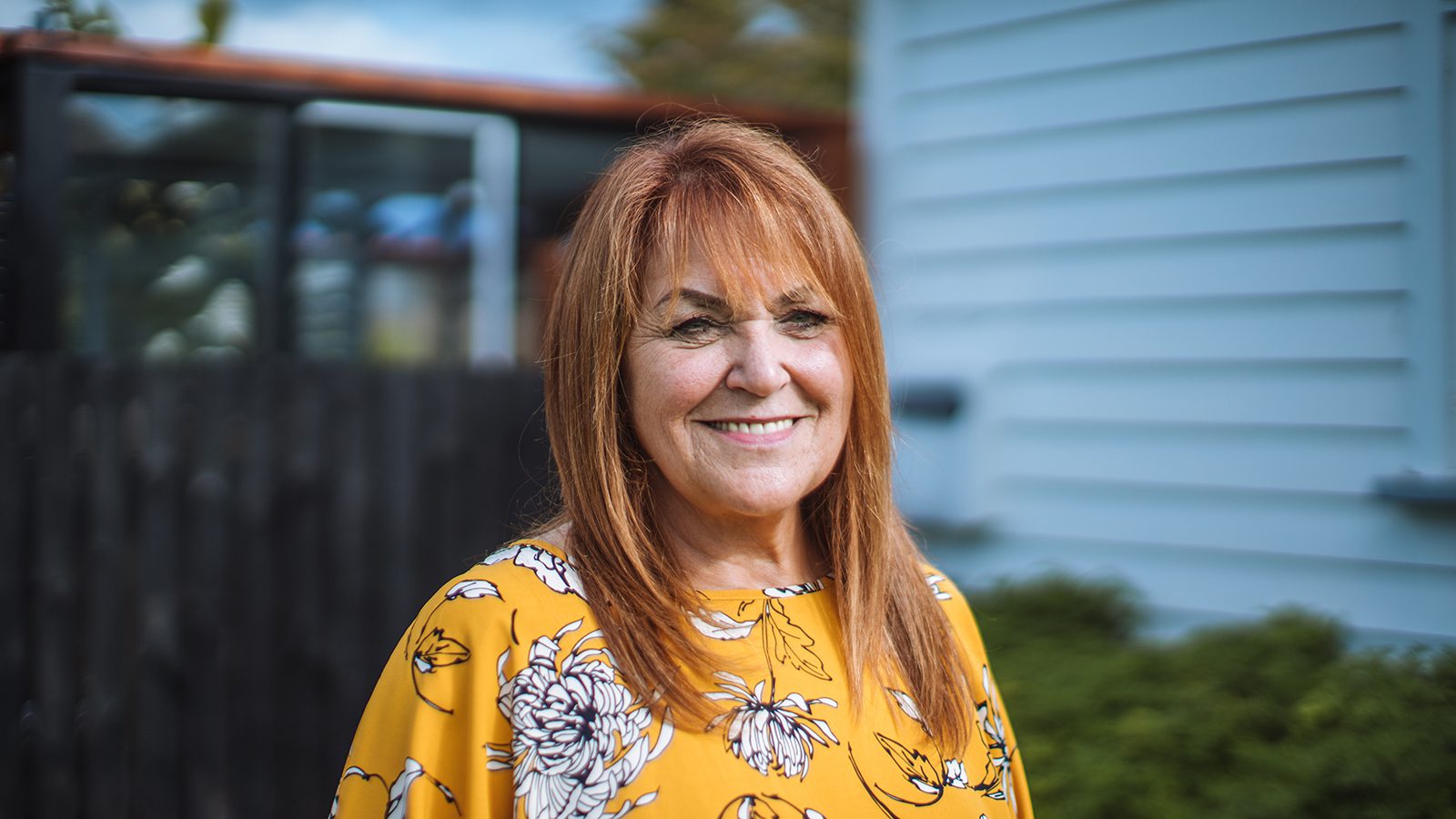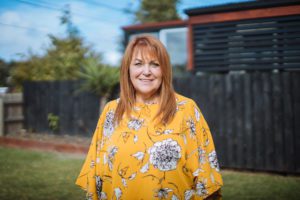Since November 2019, Faye has been the Mātanga Oranga Whānau specialist at Visionwest; a role that was established to enable Visionwest to provide a programme to whānau in West Auckland that would address the urgent need to support those living with historic and current intergenerational trauma.
Many of the whānau who come to the various Visionwest support services arrive with trauma, and many of these are Māori. As part of our kaupapa Māori support for whānau, we want to be able to provide some proactive counselling for these whānau. For that to work, it needs to be in a place where whānau can come in and sit and talk about what’s going on in their lives and begin to face, in a culturally informed way, the trauma that is going on for them.
Faye’s client whānau are referred to her by Visionwest Housing and she sees up to 20 whānau each week. There is no other service like this in West Auckland.
Something special happens at Mātanga Oranga. Here Māori are met by Māori and there is an immediate connection. They can come in and make themselves at home.
A lot of whānau say they like it because they don’t feel judged. Of course, they are not judged in other organisation either but that doesn’t stop people feeling it. Because of where so many have come from and what they’ve done, they feel there is a judgement attached to them. We simply accept people where they are at knowing that, with the right guidance and support, they can take the steps needed to transform their lives.
Faye’s key to working with whānau Māori is a counselling approach she developed herself. Named Black Rain, it’s a visual genogram which Faye uses to encourage each individual to track their whānau back as far as they can – back to great-grandparents at least. Then she begins to talk about the ‘dark clouds’ that might have existed for their predecessors and how those clouds might have an effect on their life and the life of their whānau today.
This is a powerful approach and enables each individual to look at their life in the context of their genealogy.
There is nothing wrong with a western style of counselling but, for Māori, it can be very clinical. For those who come to Mātanga Oranga, we create a sense of family… whānau. This gives them the space to open up.
Another key to the Black Rain approach is that we look at the spiritual aspect of a person’s life. I believe, we often work hard to address the physical, social, and emotional needs of a person, but we neglect the spiritual, the wairua.
Let’s say we have a woman come in who has perpetrated years of family violence, or a man who has lived with years of drug addiction, these things will have an impact on their spiritual lives. Black Rain opens it all up to enable a person to engage and look at where they are headed and what changes need to be made in all areas of life, including the spiritual.
The aim of Mātanga Oranga is to provide Māori informed care to those who are facing intergenerational trauma. Faye’s work is primarily with complex trauma.
The Key to Mātanga Oranga
Faye is Visionwest’s Mātanga Oranga Whānau specialist.
The key to the work at Mātanga Oranga is that I’m interested in your childhood, your mum and dad and your grandparents, and how your family has been formed and what’s come through your family because, if you’re sitting there telling me you just did 10 years in prison, I’m interested in what happened for you to have arrived at that place.
I’m looking for the trauma. If a child has grown up and seen horrific violence from a young age, there is a freezing that occurs in that space. So, when we look at drug addiction or sexual addiction or alcohol addiction, it’s key to me that there is a trauma there that needs to be explored and talked about.
In the same way, in most cases, when people are living in extreme violence, they don’t stop to think about the impact that it’s having on them. They just get up the next day battered and bruised and get on with the things they need to do. To me, that speaks of a trauma that gets pushed down over and over. Eventually a person in that position will get to a place where that trauma needs to be addressed, or it will ruin them as a person.
The service we offer here is a place where it’s safe enough for people to explore these things. We put a lot of time into the feeling of the room and the feeling people get when they come in here”
Before starting in this role, Faye was employed as Housing Frist Programme Manager. She was on a break after completing over 25 years as a trauma therapist in New Zealand and Australia. In her Housing First role, one thing she kept seeing within her housing clients was trauma. That led her to wonder how any person could sustain a tenancy when there was so much negativity in their life. From there it was a natural thing to do something about it and Mātanga Oranga was formed.
Now, as Faye looks at her career, she sees that one thing has changed. There was a time when most of her time was spent with women who had come from extreme violence – often women from gangs. More recently, many of her clients have been men – men who come from extreme backgrounds.
At Mātanga Oranga, it tends to be older men who are coming along. I think many of them get to a point where they say, ‘I’m tired of doing life the way I’m doing it. I need help to change.’ While things have changed and it’s more acceptable for men to seek help these days, it’s still a big thing for men to come through that door and ask for help.
It’s happening though. We have men who haven’t worked for years, if ever, but are working today. We have other men who have hung up their patches and are doing degrees at Uni – in the past 12 months, three men and three women are doing university degrees. There are five people who are back in the workforce after not working for decades.
For Faye, the most rewarding thing about her work is seeing children going back home after spending time in Oranga Tamariki care. Many of her client whānau are men and women who look at their lives and think, ‘I can’t let my children go through what I’ve been through,’ and so they do the hard mahi to get their children back.
One whānau I worked with – both husband and wife – had been meth addicts and living horrific lifestyles for 25 years. Their children were in care. Today they have a Visionwest home. They have been clean for over year. The husband has a job. And, their children live with them, happy and reunited as a family.
I wish people understood this – that many of the people we so easily look down on do the things they do because it’s trauma-driven. The only way they can make it through their day is through drugs and alcohol. And, because their home life is so bad – if they have a home – every day they are retraumatised.
If we can just find the cause of that trauma and support those people as they journey to find release from it, their lives will be transformed and, with that, entire communities can be made healthy again.
Mātanga Oranga is a service of Huia Mai, Visionwest’s kaupapa response to the needs of Māori in our community.
Click here to find out more about Huia Mai and Mātanga Oranga.




